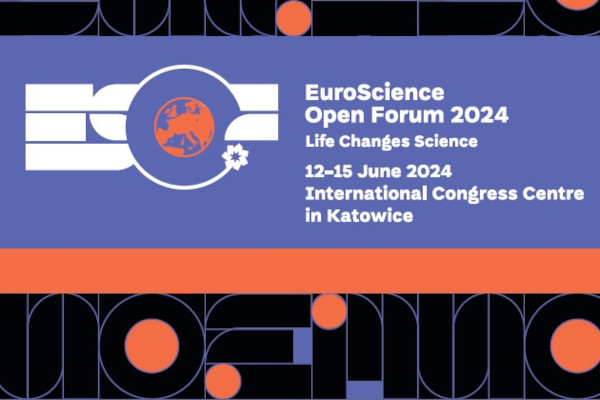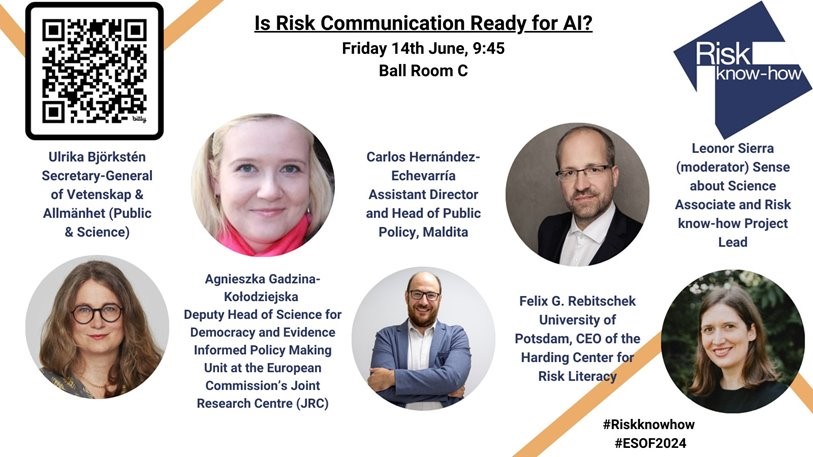The EuroScience Open Forum (ESOF) is a biennial meeting designed to offer the scientific community a platform for interdisciplinary and intersectional debate about scientific culture, scientific research, and innovation.

The conference’s main goal is to explore the connections between science and society, the conditions for conducting research, and their impact on society. ESOF brings together researchers, innovators, policymakers, journalists, science communication officers and educators to discuss current and future breakthroughs in contemporary science. Vetenskap & Allmänhet (Public & Science Sweden) is involved in two sessions during the conference, meet us there!
How to achieve impactful science engagement? Findings from the Nordic-Baltic Region
#12th of June, 13:00-14:15 (Conference room 1)
Increased involvement and engagement of societal actors in research may help to strengthen the exchange between science and society and combat mistrust and disinformation. Knowledge of how to engage society in science is therefore crucial to build a science literate society. But how do science and researchers successfully engage with the public, and how are the values and interests of the society taken into account? This roundtable session will share insights into scicomm, public attitudes to research and best practices of public engagement activities across the Nordic-Baltic region.
Speakers:
- Ulrika Björkstén, Vetenskap & Allmänhet (Sweden),
- Jonni Karlsson, Open Science Secretariate, The Federation of Finnish Learned Societies (Finland),
- Suvi Lahtonen, The Committee for Public Information (Finland)
- Ebe Pilt, University of Tartu, (Estonia)
Is Risk Communication Ready for AI?
#14th of June, 09:45-11:00 (Ball Room C)
Artificial intelligence (AI) is playing an increasing role in our day-to-day lives. For such tools to be effective, an understanding of the risks associated with their use will be needed across society, meaning widespread risk communication will be necessary. This session discusses whether current risk communication is prepared for such a task and whether those who need to make informed decisions when using AI tools have the risk know-how necessary to do so.
Policymakers are already trying to mitigate some of the risks through regulation, such as the EU’s proposed Artificial Intelligence Act. However, regulation won’t be enough. Many of the risks associated with AI cannot be avoided if we wish to get the full benefit of this technology, and so we must prepare to live with these risks. Right now, AI is being used to help doctors diagnose, determine people’s parole decisions, and even approve marriage licenses. All these applications have their unique risk-benefit considerations, and people who are applying the AI and those to whom the AI is being applied must have the know-how to question the quality of the tool, understanding its strengths and limitations to ensure it’s used as intended.
What questions do policymakers need to ask to hold decision-making by the government on AI to account? How should journalists communicate the associated trade-offs of using AI to make decisions? What questions should a patient be able to ask when they receive a diagnosis involving an AI tool? This session will make recommendations on how policymakers can prepare society for the widespread use of AI in public life so that people are empowered to understand the key impacts of AI in their lives.

Speakers:
- Agnieszka Gadzina-Kolodzieska, Head of Science for Democracy and Evidence Informed Policy Making at JRC (EUs Joint Research Centre)
- Felix G. Rebitschek, CEO of Harding Center for Risk Literacy, Potsdam
- Ulrika Björkstén, Secretary-General of Public & Science Sweden
- Carlos Hernández-Echevarría, Head of Public Policy, Maldita
- Leonor Sierra PhD, Sence About Science (Moderator)
Find out more about the ESOF conference and the programme on the event website.
